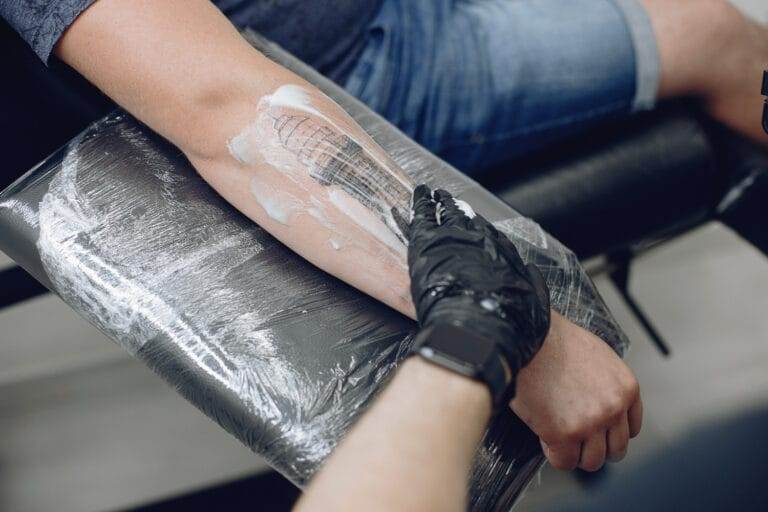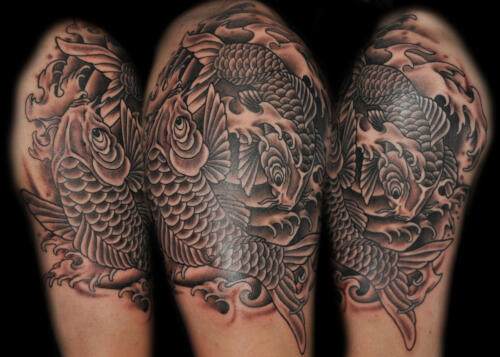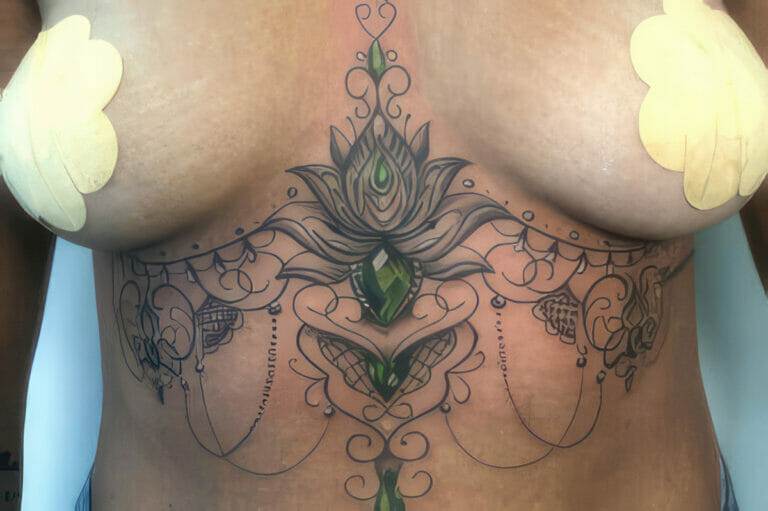
Allergies can significantly influence the healing process of a new tattoo, often complicating what is typically a straightforward experience. When an individual suffers from allergies, their immune system is already in a heightened state of alert, which can lead to increased sensitivity and inflammation. This heightened sensitivity can manifest in various ways, including prolonged redness, swelling, and discomfort around the tattooed area.
The body’s response to allergens can interfere with the natural healing process, potentially leading to complications such as infections or delayed recovery. Moreover, the presence of allergens in the environment can exacerbate skin reactions. For instance, pollen, dust mites, and other common allergens can irritate the skin, making it more susceptible to adverse reactions when combined with a fresh tattoo.
This interaction can lead to a cycle of irritation and inflammation that not only affects the appearance of the tattoo but also the overall health of the skin. Understanding these dynamics is crucial for anyone considering getting a tattoo during allergy season, as it allows for better preparation and management of potential issues.
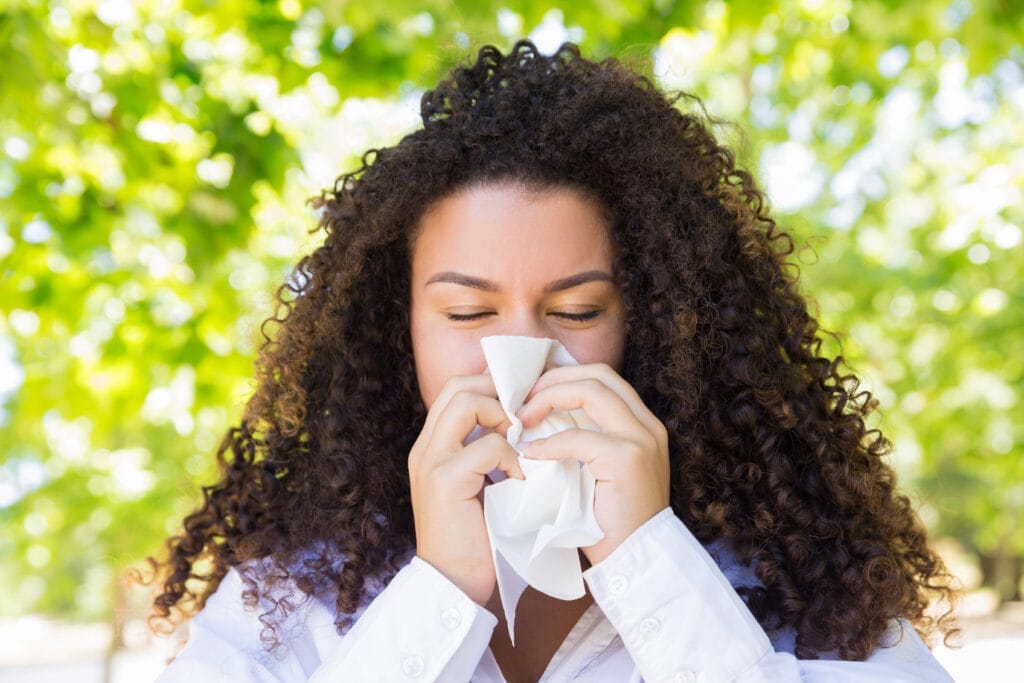
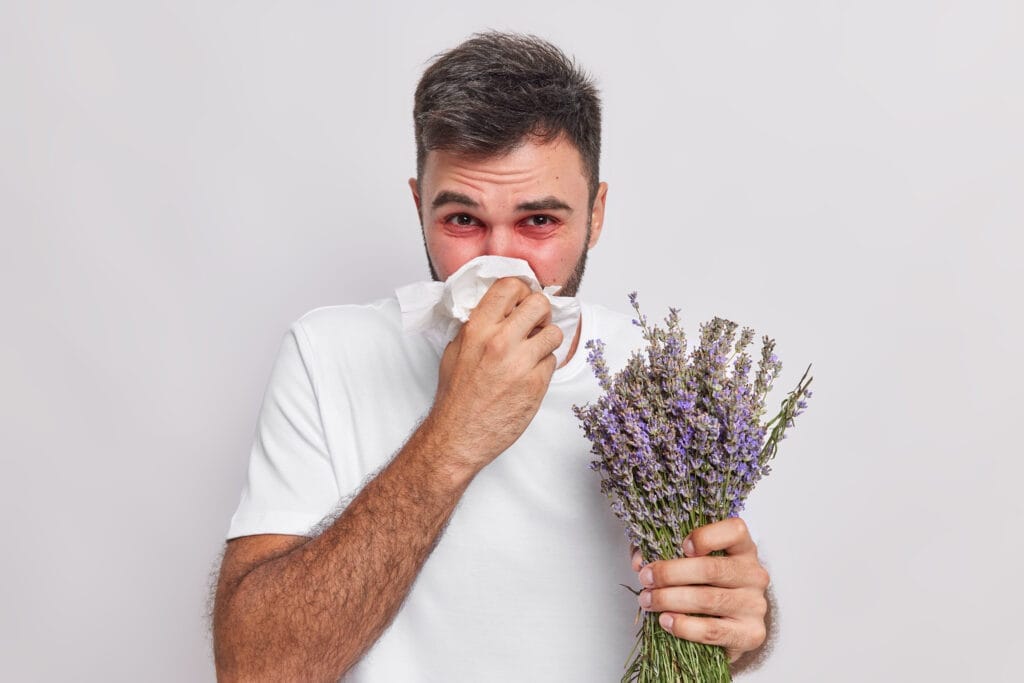
Key Takeaways
- Allergies can impact the healing process of a new tattoo, leading to complications such as itching, redness, and swelling.
- Before getting a tattoo during allergy season, it’s important to consult with a dermatologist to discuss any potential risks and precautions to take.
- Allergy sufferers should choose tattoo aftercare products that are hypoallergenic and free from common allergens such as fragrances and dyes.
- Managing tattoo healing during allergy season may require extra care, such as keeping the tattooed area clean and moisturized to prevent irritation.
- To prevent allergic reactions to tattoo ink, individuals should consider patch testing and researching the ingredients in the ink beforehand.
Precautions to take before getting a tattoo during allergy season
Consult a Healthcare Professional
Individuals should consult with their healthcare provider or allergist to discuss their specific allergies and any potential risks associated with tattooing. This conversation can provide valuable insights into how one’s allergies may affect the healing process and what steps can be taken to mitigate any adverse effects.
Monitor Local Pollen Counts
In addition to medical advice, it is wise to monitor local pollen counts and avoid scheduling a tattoo appointment during peak allergy times. Choosing a day when allergen levels are lower can significantly reduce the likelihood of experiencing allergic reactions during the healing phase.
Maintain a Clean and Sterile Environment
Furthermore, ensuring that the tattoo studio maintains a clean and sterile environment is crucial. A reputable establishment like Redemption Ink in San Diego prioritizes hygiene and safety, which can help minimize the risk of infections that could complicate healing.
Choosing the right tattoo aftercare products for allergy sufferers

Selecting appropriate aftercare products is vital for anyone with allergies, as many conventional products may contain irritants or allergens that could provoke a reaction. It is advisable to opt for fragrance-free and hypoallergenic products specifically designed for sensitive skin. These formulations are less likely to contain harsh chemicals or additives that could interfere with healing or trigger an allergic response.
Additionally, natural alternatives such as coconut oil or shea butter can be excellent choices for tattoo aftercare. These products are often well-tolerated by individuals with sensitive skin and provide necessary moisture without introducing potential allergens. It is also beneficial to conduct a patch test on a small area of skin before applying any new product to the tattooed area.
This precaution can help identify any adverse reactions before they affect the healing tattoo.
How to manage tattoo healing during allergy season
Managing tattoo healing during allergy season requires vigilance and proactive care. One of the most critical aspects is maintaining cleanliness around the tattooed area. Regularly washing the tattoo with mild soap and water helps remove allergens that may settle on the skin’s surface.
After cleansing, gently patting the area dry with a clean towel is essential to avoid irritation caused by rubbing. In addition to cleanliness, keeping the tattoo moisturized is crucial for optimal healing. Applying a suitable aftercare product as recommended by the tattoo artist can help prevent excessive dryness and promote healing.
However, it is important to avoid over-moisturizing, as this can lead to clogged pores and potential infections. Striking a balance between hydration and cleanliness will support the healing process while minimizing the risk of complications associated with allergies.
Tips for preventing allergic reactions to tattoo ink
Preventing allergic reactions to tattoo ink begins with thorough research into the types of inks used by the artist. Some inks contain heavy metals or synthetic dyes that may trigger allergic responses in sensitive individuals. It is advisable to inquire about the specific brands and ingredients used in the inks at Redemption Ink in San Diego, as they prioritize using high-quality materials that are less likely to cause adverse reactions.
Another effective strategy is to request a patch test before getting a full tattoo. This involves applying a small amount of ink to a discreet area of skin and monitoring for any signs of an allergic reaction over 24 to 48 hours. If no reaction occurs, it is generally safe to proceed with the tattooing process.
Additionally, individuals should communicate openly with their tattoo artist about their allergies and sensitivities, allowing for tailored recommendations that prioritize safety and comfort.
Recognizing the signs of an allergic reaction to a new tattoo
Being able to recognize the signs of an allergic reaction is crucial for anyone who has recently gotten a tattoo, especially during allergy season. Common symptoms may include excessive redness, swelling, itching, or rash around the tattooed area. While some degree of redness and swelling is normal immediately after getting a tattoo, persistent or worsening symptoms may indicate an allergic reaction.
In more severe cases, individuals may experience blistering or oozing from the tattoo site, which could signal an infection or an acute allergic response. If any of these symptoms arise, it is essential to seek medical attention promptly. Early intervention can help prevent further complications and ensure that appropriate treatment is administered.
Consulting with a dermatologist about tattooing during allergy season
Consulting with a dermatologist before getting a tattoo during allergy season can provide invaluable insights tailored to individual skin types and sensitivities. A dermatologist can assess any pre-existing skin conditions or allergies that may impact the healing process and offer personalized recommendations for both tattooing and aftercare. Additionally, dermatologists can provide guidance on suitable inks and aftercare products that minimize the risk of allergic reactions.
They may also suggest alternative methods for managing allergies during this time, such as antihistamines or topical treatments that can alleviate symptoms without compromising the integrity of the new tattoo. This proactive approach ensures that individuals are well-informed and prepared for their tattoo experience.
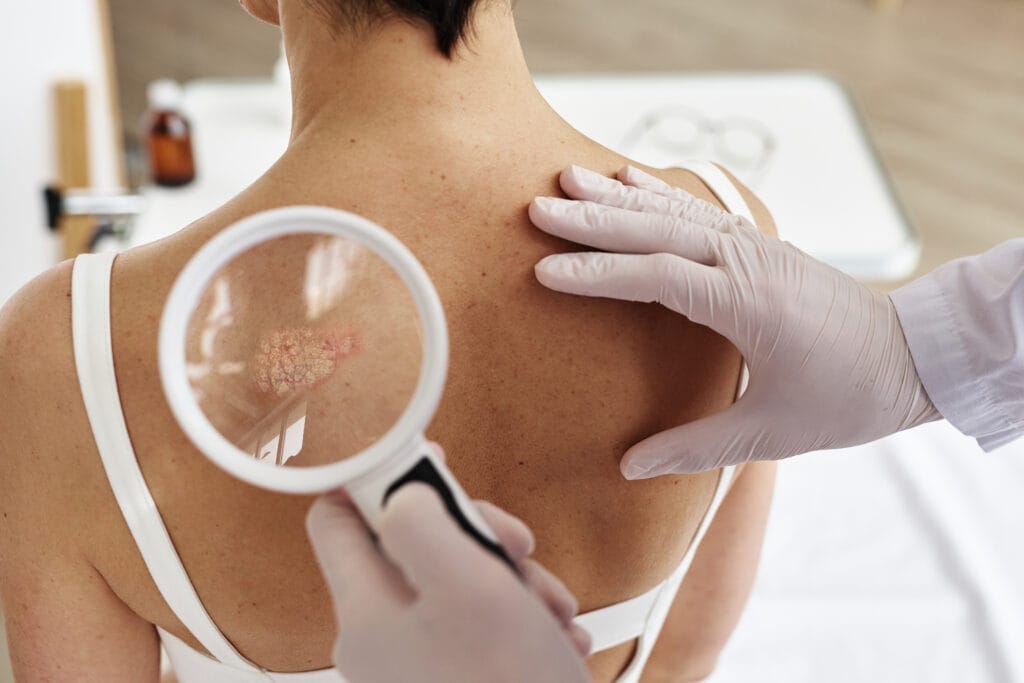
Long-term care for tattoos during allergy season
Long-term care for tattoos during allergy season involves ongoing vigilance and attention to skin health. Even after the initial healing phase has passed, individuals should continue to monitor their tattoos for any changes or signs of irritation. Regular moisturizing helps maintain skin elasticity and vibrancy while protecting against environmental allergens that may cause flare-ups.
Furthermore, using sunscreen on exposed tattoos is essential for preventing fading and protecting against UV damage. Many sunscreens are formulated with ingredients that may irritate sensitive skin; therefore, selecting hypoallergenic options is advisable. By prioritizing long-term care and being mindful of allergies, individuals can enjoy their tattoos while minimizing potential complications associated with seasonal sensitivities.
In conclusion, understanding how allergies impact tattoo healing is crucial for anyone considering body art during allergy season. By taking appropriate precautions, choosing suitable aftercare products, managing healing effectively, recognizing signs of allergic reactions, consulting with dermatologists, and committing to long-term care, individuals can navigate this process successfully while enjoying their tattoos without unnecessary complications.

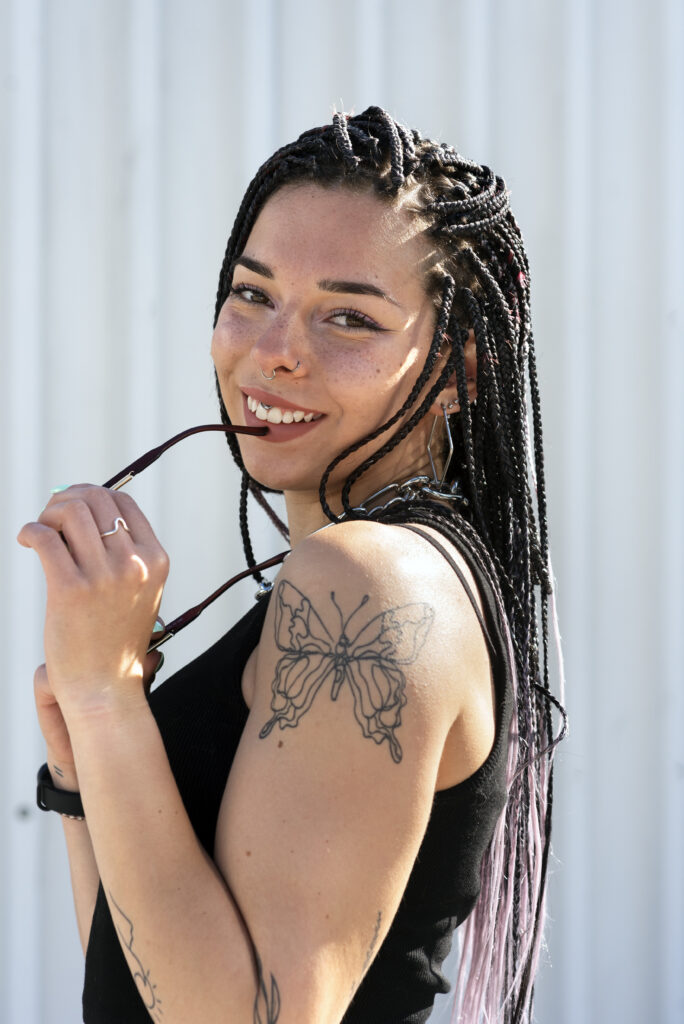
FAQs
What is tattooing during allergy season?
Tattooing during allergy season refers to the process of getting a tattoo during a time when seasonal allergies are prevalent. This can pose certain risks and require specific precautions to ensure the tattoo heals properly.
What precautions should be taken when getting a tattoo during allergy season?
Some precautions to take when getting a tattoo during allergy season include ensuring that any allergy symptoms are under control before the tattooing process, discussing any allergies with the tattoo artist, and following proper aftercare instructions to prevent any complications.
How can seasonal allergies affect the tattoo healing process?
Seasonal allergies can affect the tattoo healing process by causing increased itching, irritation, and potential allergic reactions to the tattoo ink or aftercare products. This can lead to complications and impact the overall outcome of the tattoo.
What are some care tips for managing a new tattoo during allergy season?
Care tips for managing a new tattoo during allergy season include keeping the tattooed area clean and moisturized, avoiding scratching or picking at the tattoo, and using allergy-friendly aftercare products to prevent any adverse reactions.
Can allergies impact the choice of tattoo ink or aftercare products?
Yes, allergies can impact the choice of tattoo ink or aftercare products. It is important to discuss any known allergies with the tattoo artist and to choose hypoallergenic or allergy-friendly products to minimize the risk of adverse reactions.





